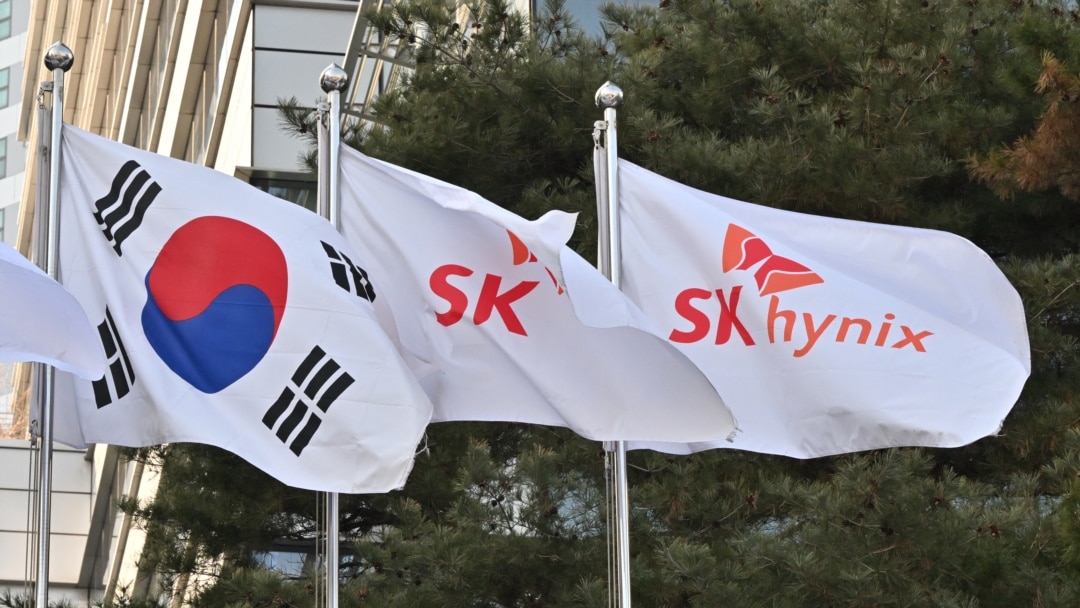South Korea's Chip Exports Reach New Heights: Drivers of Growth and Government Support
In the global semiconductor market, South Korea plays a pivotal role. Recently, the country's chip exports have been on the rise, with the latest data showing a year-on-year increase of 30.8% in November, reaching $12.5 billion and setting a new record for the same period in history. This robust performance not only injects new vitality into South Korea's economy but also sends a positive signal to policymakers. Faced with global economic challenges and competition, the South Korean government has implemented a series of measures to support its chip industry and maintain its competitiveness in the global market.
New Highs in South Korea's Chip Exports
 According to data released by the Ministry of Economy and Industry of South Korea, the country's overall exports in November increased by 1.4% year-on-year, maintaining a growth trend for 14 consecutive months; imports decreased by 2.4% year-on-year, with a trade surplus of $5.6 billion. Looking at the export items, semiconductors have become the main driver of South Korea's export growth. South Korea's semiconductor exports in November increased by 30.8% year-on-year, reaching $12.5 billion, setting a new record for 13 consecutive months. This growth is attributed to the continuous global demand for memory chips, especially with the development of technologies such as artificial intelligence, the Internet of Things, 5G, and cloud computing, which have led to an increasing demand for high-performance chips. South Korea is home to the world's two largest memory chip manufacturers, Samsung Electronics and SK Hynix, whose businesses cover a wide range of areas including memory chips, processors, and image sensors, making them significant influencers in the global technology supply chain.
According to data released by the Ministry of Economy and Industry of South Korea, the country's overall exports in November increased by 1.4% year-on-year, maintaining a growth trend for 14 consecutive months; imports decreased by 2.4% year-on-year, with a trade surplus of $5.6 billion. Looking at the export items, semiconductors have become the main driver of South Korea's export growth. South Korea's semiconductor exports in November increased by 30.8% year-on-year, reaching $12.5 billion, setting a new record for 13 consecutive months. This growth is attributed to the continuous global demand for memory chips, especially with the development of technologies such as artificial intelligence, the Internet of Things, 5G, and cloud computing, which have led to an increasing demand for high-performance chips. South Korea is home to the world's two largest memory chip manufacturers, Samsung Electronics and SK Hynix, whose businesses cover a wide range of areas including memory chips, processors, and image sensors, making them significant influencers in the global technology supply chain.
Government Support: Low-Interest Loans and Tax Incentives
Facing uncertainties in the global economic environment and tariff threats from the new U.S. administration, the South Korean government has taken a series of measures to support the development of the chip industry.
1. Providing Low-Interest Loans to Support the Chip Industry
To counter global competition and policy uncertainties, the South Korean government plans to provide domestic chip manufacturers with low-interest loans amounting to 14.3 trillion won (approximately $10.2 billion) by 2025. These funds will be used to support chip manufacturers in research and development, production, and capacity expansion, ensuring South Korea's leading position in the global semiconductor market.
2. Increasing Tax Deduction Rates and Planning for an Artificial Intelligence Computing Center
The South Korean government also plans to increase the tax deduction rate for semiconductor-related companies by 10 percentage points to reduce corporate tax burdens and encourage more investment and innovation. Additionally, the government plans to build a national "Artificial Intelligence Computing Center" worth 4 trillion won by 2030. The center will be equipped with high-performance computing facilities to provide strong computational support for artificial intelligence research and development, promoting technological innovation and industrial upgrading.
3. Strengthening International Cooperation and Talent Cultivation
The South Korean government is also actively promoting cooperation with leading international companies and research institutions to jointly conduct research and development of cutting-edge technologies. At the same time, the government has increased efforts to cultivate and attract talent in the semiconductor field, attracting more outstanding talents to the semiconductor industry through measures such as setting up scholarships, providing internship opportunities, and career development support.
South Korea's Semiconductor Titans: Samsung Electronics and SK Hynix
 Samsung Electronics and SK Hynix, as key players in South Korea's semiconductor industry, have significant competitiveness in the global market. Both companies not only lead in the memory chip sector but also actively promote the research and development and standardization of new technologies. For example, Samsung Electronics has made significant progress in areas such as 5G, artificial intelligence, and the Internet of Things, launching a variety of high-performance chips and solutions. SK Hynix maintains a leading position in DRAM and NAND flash memory chips and continuously strengthens cooperation with leading global companies to jointly promote the development of the semiconductor industry.
Samsung Electronics and SK Hynix, as key players in South Korea's semiconductor industry, have significant competitiveness in the global market. Both companies not only lead in the memory chip sector but also actively promote the research and development and standardization of new technologies. For example, Samsung Electronics has made significant progress in areas such as 5G, artificial intelligence, and the Internet of Things, launching a variety of high-performance chips and solutions. SK Hynix maintains a leading position in DRAM and NAND flash memory chips and continuously strengthens cooperation with leading global companies to jointly promote the development of the semiconductor industry.
This year, both companies have expanded their semiconductor product layout in the United States' artificial intelligence (AI) cutting-edge technology and data center fields. By increasing the sales of high-end semiconductors such as High Bandwidth Memory (HBM) and DDR5, they have significantly boosted their semiconductor business sales in the U.S. Specifically, Samsung Electronics' U.S. semiconductor sales department achieved sales of 30.4438 trillion won (approximately 158.2 billion yuan) in the first three quarters of this year, nearly doubling year-on-year. SK Hynix also performed well in U.S. semiconductor sales, with sales reaching 21.1584 trillion won, nearly tripling compared to the previous quarter.
Challenges and Future Outlook
Despite the strong growth momentum of South Korea's chip exports, the country's industry growth also faces challenges from the global economic environment, including the rise of trade protectionism and uncertainties in the global supply chain. According to the latest forecast from the Bank of Korea, South Korea's economy is still expected to struggle to achieve growth above 2% in 2025 and 2026. This is partly due to the memory chip industry's decline from the peak of the recent boom-bust cycle. In addition, the new U.S. president has threatened to impose additional tariffs, putting pressure on export-dependent countries such as South Korea.
However, the South Korean government, along with companies like Samsung Electronics and SK Hynix, is actively addressing these challenges by strengthening technological innovation, optimizing industrial structures, and expanding into diversified markets, striving to maintain competitiveness in the global semiconductor market. With the continuous growth in global demand for high-performance chips, South Korea's semiconductor industry is expected to continue maintaining its global competitiveness and laying a solid foundation for future growth.
ConevoMemory ICs
Conevo is a global independent semiconductor component distributor that offers a wide range of ic chips such as memory, MCUS, sensors, controllers, relays, and more. For more details about Conevo chips, click to see more.
● The H26M41208HPRA is a high-performance, 4Gb (512Mx8) DDR4 SDRAM memory chip. It offers high-speed data transfer rates and low power consumption, making it suitable for applications such as servers, high-end graphics cards, and advanced computing devices that require large amounts of fast memory.
● The H5TQ2G43EFR-RDC is a 2Gb DDR3 SDRAM chip manufactured by SK Hynix, designed for high-performance memory applications. This synchronous DRAM operates at a voltage of 1.5V and supports fully differential clock inputs, allowing for high-speed data transfer.
● The K4B4G1646D-BHMA is a 4Gb DDR3 SDRAM memory chip developed by Samsung Electronics. It is organized as a 256Mx16 with 8 banks, designed for high-speed data transfer rates up to 2133Mb/sec/pin (DDR3-2133) for general applications.
Website: www.conevoelec.com
Email: info@conevoelec.com








